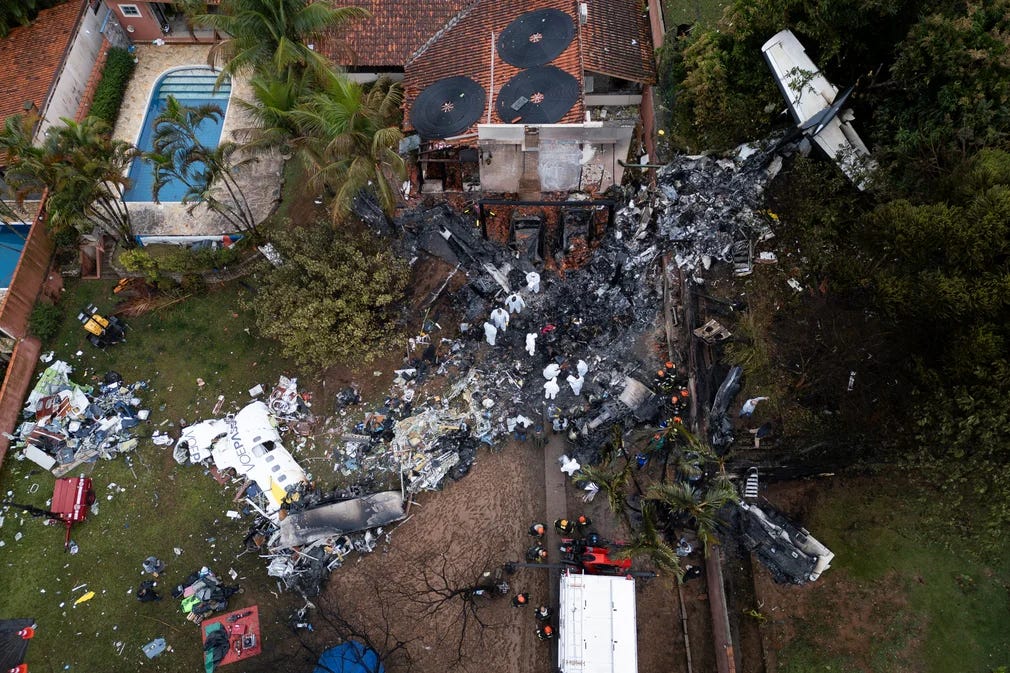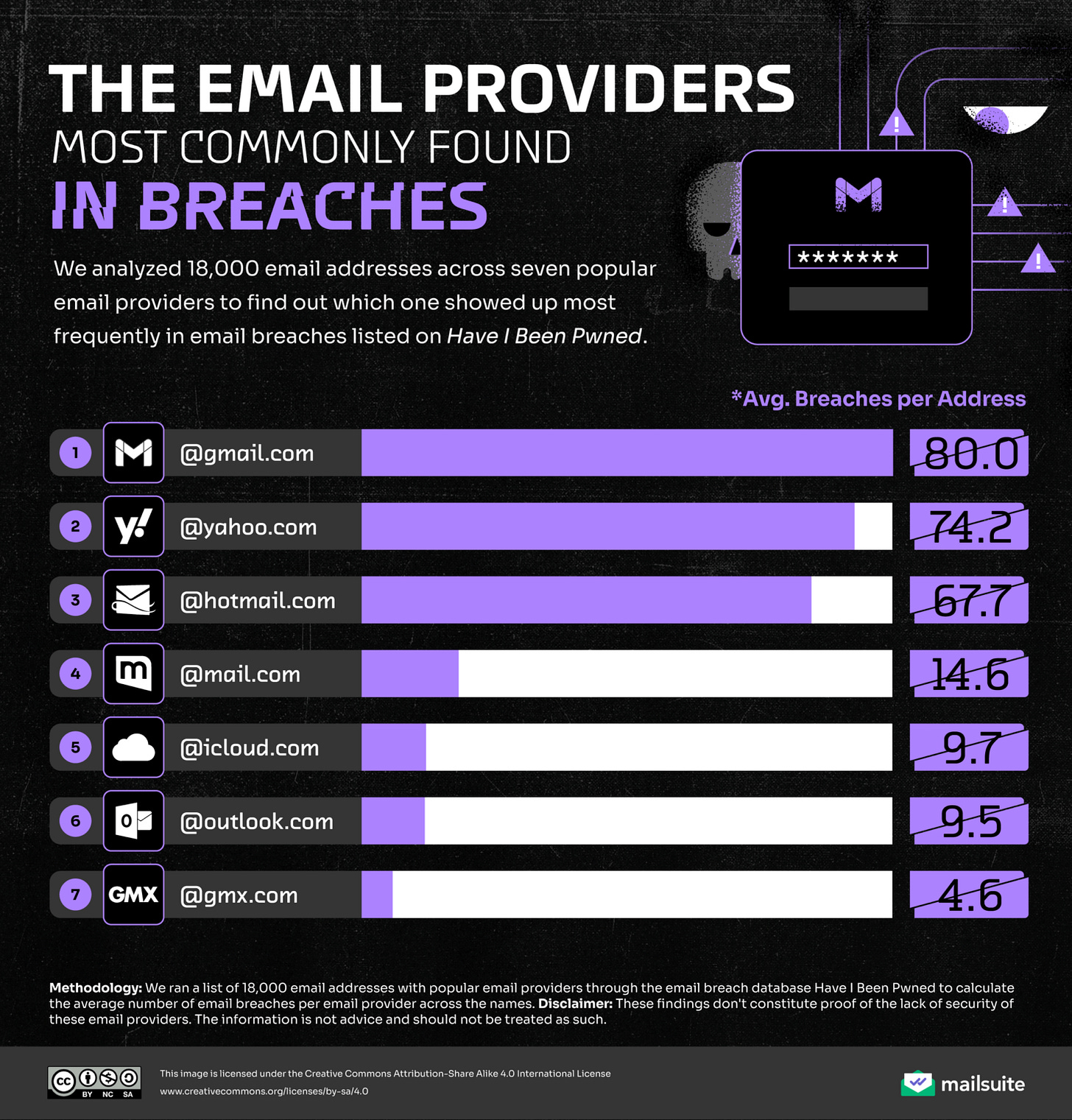The 224th Block: No good news is still news
Also, if your name is Bob, read to the end for some more bad news
This week…
Your reading time is about 8 minutes. Let’s start.

I enrolled in a law programme. I will start in October. I’ll be a part-time law student for the next four years. I am not looking to change careers; I want to learn something new. I thought you should know. This will not change anything between us, though.
A few events in the last year intrigued me about the law. One of these was sitting in a media lock-up for the release of a judgement by the Supreme Court of Canada. (It was related to a publication ban on information regarding a couple of high-profile trials where the press argued that the information was of public interest.) With an advanced copy under embargo, we sat in a 1.5-hour briefing where an administrator walked us through paragraph by paragraph of the judgment so that it was clear. I have helped many colleagues read academese, but legalese is a foreign language to me.
The other event dealt with the authorised use of recording, which is different from musical performance, which is different from video, which is different from likeness, of artists in the production of a special programme on the rise of Punjabi music in Canada. Typically, copyright laws provide fair dealing exception, which allows the use of copyrighted material in news reporting (as well as other purposes deemed fair, such as academic research) without needing to jump through all these legal hoops. But this programme was not a newscast, so it was uncharted waters for me.
Nobody got into any trouble in either case, but I did feel frustrated and inadequate. Legalese, man. Hey, Google, play Complicated by Avril Lavigne.
And now, a selection of top stories on my radar, a few personal recommendations, and the chart of the week.
ICYMI: The Previous Block was about the (lack of) access to information and healthcare. FWIW:
How Getty beams those incredible Olympic images around the world within seconds by Ina Fried for Axios.
French authorities to investigate Algerian boxer Imane Khelif’s cyberbullying charges against Elon Musk, J.K. Rowling by Elena Giordano for Politico.eu.
A week of unrest and a week of silence from big tech by Graham Fraser for BBC.
Statistics should serve the public not just governments by Paul Allin for LSE.
CORRECTION NOTICE: None notified.ON THE MEDIA
Giorgia Meloni’s media freedom problem ($)
Amy Kazmin for FT:
Italy’s postwar constitution — adopted after the fall of Benito Mussolini’s fascist dictatorship — guarantees citizens’ right “to express their thoughts in speech, writing, or any other form of written communication”.
Yet the country’s penal code also includes a fascist-era criminal defamation law, which prescribes several years in prison and fines for damaging someone’s reputation. Unlike in countries such as the UK, these offences can include insults as well as specific claims about a person.
Oxygen for Information, a Rome-based observatory, estimates more than 6,000 libel complaints are filed each year and less than 10 per cent result in convictions.
Loosely linked:
Do legacy news media help or hurt in the fight against election misinformation? by Mark Coddington and Seth Lewis for RQ1.
Court suspends publishing ban on far-right German magazine by Rachel More and Alexander Ratz for Reuters.
How Zyma Islam mined social media and went to morgues to document police violence in Bangladesh by Benjamin Bathke for RI.
Senegal’s media outlets stage a blackout day to bring attention to press freedom concerns by Mark Banchereau and Babacar Dione for AP.
The perils facing investigative journalism in Ethiopia: Media capture, deep polarisation, and government oppression by Ermias Mulugeta for GIJN.
ON THE INTERNET
The deepfake election nightmare hasn’t happened. Singapore still wants to ban them
Nicholas Yong for Rest of World:
Worldwide, deepfake videos of politicians have surged in recent months as generative artificial intelligence tools become more accessible. In Singapore, deepfake videos of Prime Minister Lawrence Wong and President Tharman Shanmugaratnam were quickly taken down. While Singaporeans have a high degree of trust in their government, many think that deepfakes undermine their trust in politicians, a poll by technology firm Jumio earlier this year showed. A whopping 83% of Singaporeans surveyed said they were “worried about the potential for AI and deepfakes to influence upcoming elections.”
Compared to countries such as India, Indonesia, and the Philippines in the run-up to their elections, there aren’t as many deepfakes in Singapore. They have also not yet had the massive impact on elections that many had feared. But the recent incidents in Singapore have prompted authorities to consider a temporary ban ahead of the general election that is widely expected to be held later this year.
Singapore could follow the lead of South Korea, which introduced a 90-day ban on AI-generated content ahead of a legislative election in April, Josephine Teo, minister for digital development and information, said at a briefing in July. Under the new South Korean law, those who use deepfakes in relation to the election could be sentenced to up to seven years in prison or fined up to 50 million won ($36,000). The Philippine election commission has called for a similar ban ahead of a senate election in 2025, after several deepfake videos of President Ferdinand Marcos Jr. surfaced.
Loosely linked:
As AI influencers storm social media, some fear a digital pandora’s box has been opened by Geraden Cann for ABC News.
How AI can help Indigenous language revitalisation, and why data sovereignty is important by Candace Maracle for CBC News.
Vietnam’s plan to populate social media with interactive propaganda faces challenges by Nguyen Thanh Giang for Fulcrum.
OpenAI deactivates ChatGPT accounts linked to Iranian disinformation operation by Sam Sabin for Axios.
Meta just closed a vital online research tool. It’s bad news for the fight against misinformation by Amelia Johns (University of Technology Sydney), Francesco Bailo (University of Sydney), and Marian-Andrei Rizoiu (University of Technology Sydney) for The Conversation.
ON POLICY
Complicated app settings are a threat to user privacy
Joseph K. Nwankpa (Miami University) for The Conversation:
Users are often unaware of the additional steps needed for the best privacy settings. Understanding an app’s complex privacy policy may require examining the fine print of each app’s policy.
For example, Venmo’s privacy setting requires the user to choose whether to share transactions or friends lists with the public, only friends, or keep them private. However, users need to set their Default Privacy Settings, Past Transactions and Friends List separately. Default Privacy Settings do not span all of the app’s functions. Also, when you create a Venmo account, all of your transactions are public by default, immediately exposing your financial activities to anyone online.
Unsurprisingly, some high-profile people, including Ohio Sen. and Republican Vice Presidential nominee JD Vance, have left their Venmo privacy settings public, resulting in their Venmo transactions and connections becoming available for anyone using the app to see. These events highlight the importance of understanding these settings to ensure your privacy is protected.
One of the biggest cultural shocks I experienced moving to this North American continent is to learn about how much more advanced our inter-bank and online banking services are in Southeast Asia. Loosely linked:
The UN General Assembly and the fight against the cybercrime treaty by Katitza Rodriguez for EFF.
Mpox never stopped spreading in Africa. Now it’s an international public health emergency again by Jess Craig for Vox.
Force of nature genomicist builds world-class centre for Africans to help Africa by Jon Cohen and Abdullah Tsanni for Science. (If paywalled, use this Pulitzer Center link.)
Other curious links, including en español et français

LONG READ | As a former IDF soldier and historian of genocide, I was deeply disturbed by my recent visit to Israel by Omer Bartov for The Guardian.
PHOTO ESSAY | More than 1,500 accredited photographers were at the Paris Olympics 2024. Three of them, Tom Jenkins, David Levene, and Ed Alcock, covered for The Guardian and Observer.
Rise in DNA tests being used to claim citizenship of other countries by Donna Ferguson for The Guardian.
TikTokers are speeding up songs but are we forgetting the originals? by Christian Brooks for BBC News.
No es tu prima, es un estafador y quiere vaciar tu cuenta corriente: así funciona el ‘vishing’ por José Mendiola Zuriarrain en El País.
El plan de la ola reaccionaria para acabar con los derechos sexuales y reproductivos por Paula Requeijo e Yanna G. Franco en CTXT.
Presión social por adelgazar, dificultad para viajar o aislamiento: cuando la gordofobia marca tu vida por Marina Peco e Eva Cezón en RTVE.
Quelles mesures pourraient permettre des compromis législatifs entre Renaissance, la gauche et la droite ? par Thibaud Le Meneec et Fabien Jannic-Cherbonnel dans Franceinfo.
La littérature autochtone francophone fait désormais partie du paysage culturel, au Québec et dans le monde par Christophe Premat (Stockholm University) dans publication.
Len Senater : un gastronome rassembleur par Jonathan Bouchard (photographies par Evan Mitsui et Alex Lupul) dans The Conversation.
What I read, listen, and watch
I’m reading Minor Feelings: An Asian American Reckoning (2020) by Cathy Park Hong.
I’m listening to The Allusionist by Helen Zaltsman where she spoke with Marwan Kaabour, who has been collecting Arabic slang words used by and about queer people.
I’m watching Matt Bernstein’s chat with Natalie Wynn on transvestigations. (I'm a Contrapoints simp.)
Chart of the week

Bob, I have some bad news for you. Mailsuite published its email breach report earlier this month, and apparently, people with your name are more likely to appear in these breaches than others. Yuka Kato also delivered similar bad news to John, Alex, Maria, and Sara(h).


